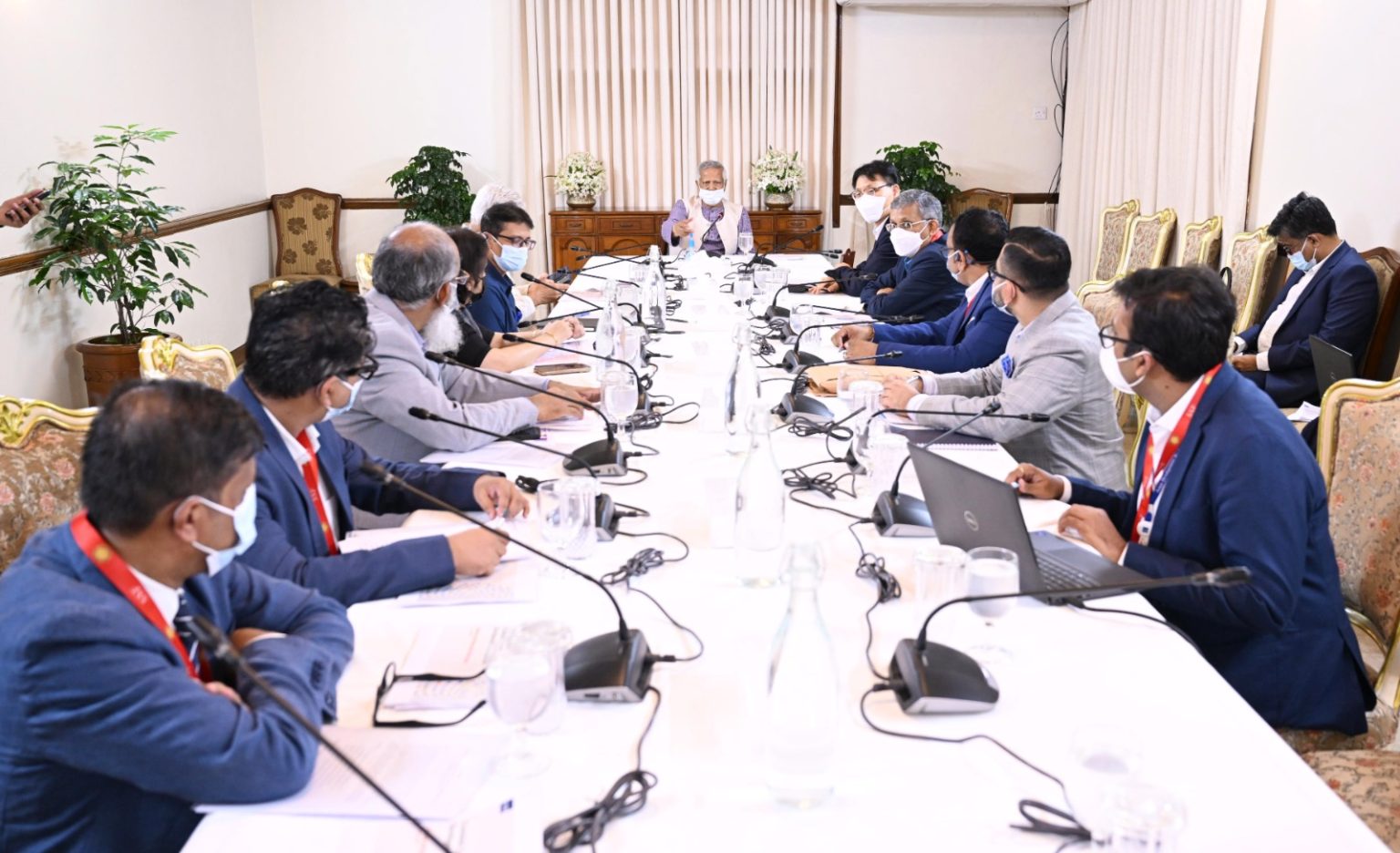Chief Adviser Muhammad Yunus has issued clear directives to ensure all development projects maintain uninterrupted river flows, emphasising that ecological considerations must take precedence in national infrastructure planning. His remarks came during a high-level meeting at state guesthouse Jamuna reviewing the ambitious “Teknaf to Tetulia Integrated Economic Corridor Development” project.
The meeting, attended by senior officials including Road Transport and Bridges Advisor Muhammad Fouzul Kabir Khan and Asian Development Bank’s Country Director Ho Yun Jong, focused on creating sustainable development models. Professor Yunus articulated three fundamental principles for future projects, beginning with absolute protection of Bangladesh’s river systems.
“As a deltaic nation, obstructing natural water flows would be catastrophic for our ecology and communities,” he warned, directing planners to prioritise hydrological studies in all infrastructure designs.
Addressing flood resilience, the chief adviser highlighted how past mistakes must inform current planning. “Our flood-vulnerable population depends on elevated roads and bridges for survival during disasters. Infrastructure must serve as refuge, not become death traps,” he stated, referencing how ill-conceived projects have exacerbated flooding in haor regions.
Adviser Fouzul Kabir Khan reinforced this point, citing specific examples where roads built through wetland ecosystems had triggered environmental disasters and intensified public suffering during floods.
The third pillar focused on transforming Bangladesh into a regional investment hub through transboundary connectivity. “This corridor must integrate Nepal, Bhutan and other neighboring economies, not just serve domestic needs,” Yunus explained, urging planners to incorporate international trade dimensions into the masterplan.
He mandated the immediate inclusion of water management experts in the project team and ordered preparation of a comprehensive environmental impact assessment before proceeding further.
The Asian Development Bank team presented technical proposals for the 350km corridor, which officials confirmed would incorporate climate-resilient features and community consultation mechanisms absent in previous projects.
With Bangladesh facing increasing climate volatility, the chief adviser’s intervention signals a paradigm shift toward ecological-sensitive development after years of criticism over environmentally damaging megaprojects. The cabinet will review the finalised masterplan next month before seeking parliamentary approval for implementation.


